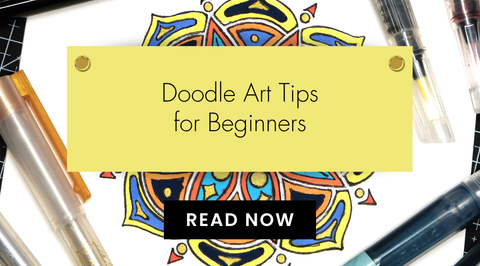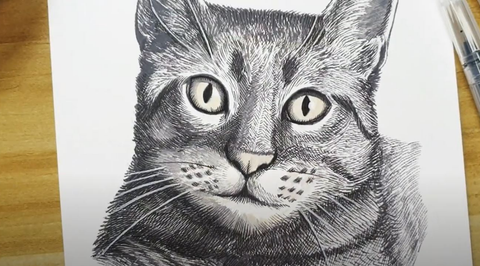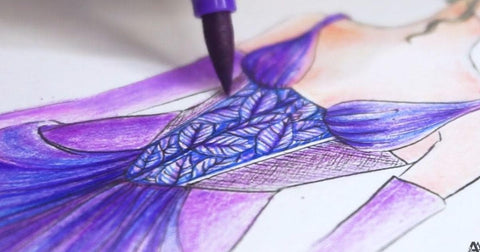Embracing and Learning from Common Watercolor Blunders
Last Updated: October 13, 2025
Watercolor painting is a beautiful and expressive art form that allows for a wide range of creativity and emotion. However, like any form of art, it comes with its fair share of challenges and potential mistakes.

As artists, it's important to embrace these mistakes and use them as opportunities for growth and learning.
In this blog post, we'll explore some common watercolor blunders and discuss how to turn them into valuable learning experiences.

Embracing Mistakes as Opportunities
Mistakes are an inevitable part of the creative process. Instead of seeing them as failures, you can choose to view them as opportunities for growth. By embracing mistakes, you learn new techniques, develop your skills, and ultimately become better artists.
In the world of watercolor painting, there are several common blunders that many artists encounter. Let's take a look at some of these and discuss how to approach them with a positive mindset.

1. Overworking the Paper
One common mistake in watercolor painting is overworking the watercolor paper. This can happen when you repeatedly layer paint on the same area, causing the paper to become saturated and prone to tearing. Instead of becoming frustrated by this mistake, use it as an opportunity to practice patience and restraint. Allow each layer of paint to dry before adding more to achieve a more delicate and translucent effect in your paintings.

2. Bleeding and Blooming
Another common watercolor blunder is experiencing bleeding and blooming, where the paint spreads uncontrollably across the paper. While this can be frustrating, it's important to remember that these natural effects are what make watercolor painting so unique and beautiful.

Embracing these unexpected outcomes can lead to new discoveries and experimentation with different techniques.
| Tip: Learn to control the amount of water and pigment on your brushes so you can harness the beauty of bleeding and blooming to enhance your artwork. |

3. Muddy Colors
Muddy colors are another challenge that many watercolor artists face. This occurs when multiple colors mix together on the paper and create a dull, lifeless appearance. Instead of feeling discouraged by muddy colors, use this as an opportunity to explore color theory and learn how different pigments interact with each other.
By experimenting with color mixing and using a limited palette, you’ll gain a deeper understanding of how to achieve vibrant and harmonious color combinations.

4. Learning from Others
In addition to embracing your own mistakes, you can also learn from the experiences of other artists. Seeking out tutorials, workshops, and online resources can provide valuable insights and techniques for overcoming common watercolor blunders. Connecting with a community of fellow artists will give you support, encouragement, and inspiration to continue growing your artistic journey.

Learn From Common Watercolor Blunders
If you’re a watercolor artist (or an aspiring one) it's important to remember that mistakes are not obstacles, but stepping stones on the path to creative growth. By embracing common watercolor blunders and approaching them with a positive mindset, you can turn these challenges into valuable learning experiences. Through patience, experimentation, and a willingness to learn from others, you can continue to develop your skills and create beautiful works of art that reflect your unique artistic voice.

Embrace your mistakes, learn from them, and keep painting with passion and perseverance. Find more inspiration and motivation for artists like you in The Creative Corner. Happy painting!






